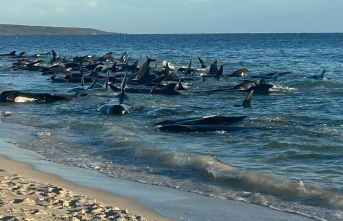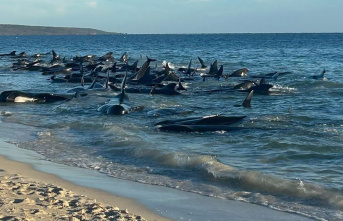THE HAGUE (Netherlands) -- Friday's announcement by the Dutch government aimed to dramatically reduce nitrogen oxide emissions to protect the environment. This plan would cause major disruptions in the multibillion-dollar Dutch agriculture industry, and angered some farmers.
The government called it an "unavoidable change" and mandated emissions reductions of up to 70% near protected nature areas, as well as as as as high as 95% elsewhere.
To finance changes that could see many farmers dramatically reduce or eliminate their livestock, the ruling coalition has allocated an additional 24.3 billion euros ($25.6 trillion).
The Dutch economy relies heavily on agriculture, which saw exports of nearly 105 billion euro last year. However, it is costly in the production of polluting gasses. Farmers have taken steps to reduce their emissions.
Prime Minister Mark Rutte admitted that the plan would be devastating for many farmers.
It has huge consequences. Rutte stated, "I understand that, it is simply horrible." "Especially if they're family businesses that want to continue proudly."
The Netherlands' provincial governments now have one year to develop concrete plans in order to reach the reductions set out in Friday's goals.
LTO, which represents 35,000 farmers in the country, called the targets "unrealistic."
Already, a group representing angry farmers has called for a protest in The Hague to protest Friday’s proposals. Past protests of the agriculture sector saw hundreds of tractors blocking roads across the country and gathering in a park at The Hague.
Because of the violation of EU emissions guidelines in the country, the government was forced to take action. Courts have blocked building and infrastructure projects in the past years to avoid further aggravating the problem.
------
Follow AP's coverage of climate issues at https://apnews.com/hub/climate












